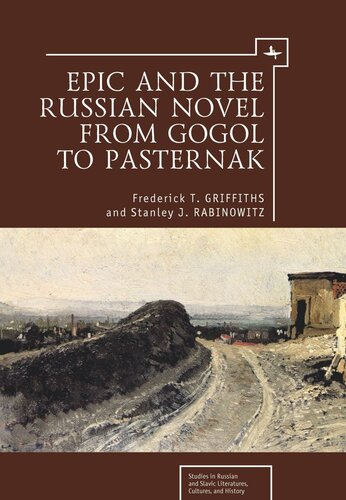

Most ebook files are in PDF format, so you can easily read them using various software such as Foxit Reader or directly on the Google Chrome browser.
Some ebook files are released by publishers in other formats such as .awz, .mobi, .epub, .fb2, etc. You may need to install specific software to read these formats on mobile/PC, such as Calibre.
Please read the tutorial at this link: https://ebookbell.com/faq
We offer FREE conversion to the popular formats you request; however, this may take some time. Therefore, right after payment, please email us, and we will try to provide the service as quickly as possible.
For some exceptional file formats or broken links (if any), please refrain from opening any disputes. Instead, email us first, and we will try to assist within a maximum of 6 hours.
EbookBell Team

5.0
30 reviewsEpic and the Russian Novel from Gogol to Pasternak examines the origin of the nineteen- century Russian novel and challenges the Lukács-Bakhtin theory of epic. By removing the Russian novel from its European context, the authors reveal that it developed as a means of reconnecting the narrative form with its origins in classical and Christian epic in a way that expressed the Russian desire to renew and restore ancient spirituality. Through this methodology, Griffiths and Rabinowitz dispute Bakhtin’s classification of epic as a monophonic and dead genre whose time has passed. Due to its grand themes and cultural centrality, the epic is the form most suited to newcomers or cultural outsiders seeking legitimacy through appropriation of the past. Through readings of Gogol’s Dead Souls—a uniquely problematic work, and one which Bakhtin argued was novelistic rather than epic—Dostoevsky’s Brothers Karamazov, Pasternak’s Dr. Zhivago, and Tolstoy’s War and Peace, this book redefines “epic” and how we understand the sweep of Russian literature as a whole.